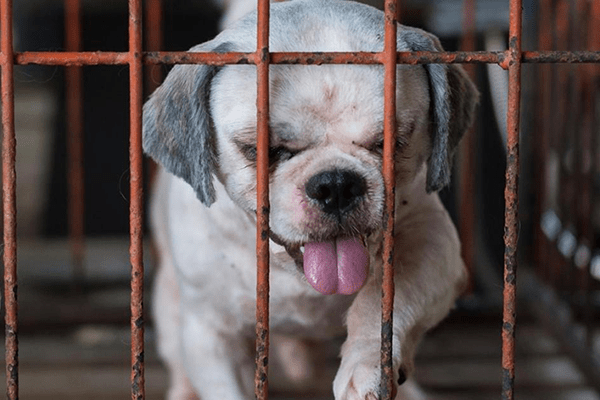|
RCBJ-Audible (Listen For Free)
|
Animal Activists Celebrate Law While Pet Store Retailers Question Impact On Business
By Anne Carroll
The Puppy Mill Pipeline Act will take effect on December 15, making it illegal to sell dogs, cats, and rabbits in New York State’s pet shops. Supporters claim the ban is a victory for animal welfare rights, while retail pet shops fear the effects it will have on the pet business.
Puppy mills are commercial pet breeding organizations known for mistreating animals, causing them considerable health issues while being deceptive about the medical state of the animals they sell. The Puppy Mill Pipeline Act was signed into law back in December 2022 to give pet stores time to adjust and recalibrate their businesses. It is designed to guard animals and consumers against bad breeding practices.
It will remain legal to adopt dogs, cats, and rabbits through humane societies, organizations associated with animal adoption, and licensed breeders. However, anyone who continues to sell puppy mill pets after December 15 could face up to $1,000 fines per violation from the Office of the Attorney General.
“Bringing a new pet into a family should be a time of excitement and joy, but often animals from ‘puppy mills’ suffer from serious medical issues and leave families heartbroken over their sick pet and with a heavy bill to pay,” said Attorney General Letitia James. “This pet sale ban will help put an end to the dangerous puppy mill to pet store pipeline that endangers pets and costs New Yorkers thousands of dollars in veterinary care.”
Under the Puppy Mill Pipeline Act pet stores can collect rental fees by showcasing animals for adoption from nonprofit animal rescues. This alternative gives stores another way to earn revenue and promotes adoption to those looking to take home a pet.
Rockland County pet shop owner Doug Staley predicts that the animals that legislators are trying to protect will inevitably “suffer in the end” because of the Puppy Mill Pipeline Act.
Doug Staley is the owner of the family run Pet Palace in New City, which has been operating since 1985. Along with pet supplies and grooming services, Pet Palace has been selling dogs and rabbits as the only licensed business in Rockland County.
Staley believes “people are still going to seek purposely bred dogs because, of course, having the choice is something that’s very important to pet owners.” He reasons that outlawing the sale of pets will only stop the licensed businesses, like Pet Palace, while allowing illegal sellers to continue their inhumane practices as the only option for consumers looking for specifically bred dogs.
Additionally, not all for-sale dogs are medically neglected and unethical, he said.
“Pet dogs are not a bad thing that come from licensed breeders and licensed sellers because these dogs are seen by vets more often under the Animal Welfare Act,” Staley explains.
Nevertheless, the Puppy Mill Pipeline Act will deprive Staley’s business of a significant revenue stream. Pet Palace offers pet supplies and grooming services, but competes with online retaliers for supplies and mass retailers in the grooming business.
Staley is left to wonder if he “will be able to remain in business.”
He bemoans that the Puppy Mill Pipeline Act is an unfair threat to his livelihood since he’s a licensed seller who has maintained “an exemplary record” from acting “ethically and responsibly” for over 30 years. He also believes the law is an unconstitutional violation of the Commerce Clause.
Pamela Hudson who has been a dog rescue transporter for twelve years, disagrees. She says, “This new legislation cannot come fast enough.”
Highly critical of the business, Hudson said, “If people realized the poor breeding practices, conditions these dogs are raised in (puppy mills, especially), and how many are subsequently euthanized or worse, they would not support an industry that profits off of the misery of feeling, sentient beings.”
Hudson acknowledges that “this law won’t end all the cruel practices, but cutting off this particular pipeline is a step in the right direction.”
Assemblymember Linda B. Rosenthal who was a sponsor of this law hopes that “Shutting down the abhorrent puppy mill pipeline that has long funneled sick and dying animals to New York State pet stores will go a long way in shutting down puppy mills nationwide,” suggesting the possibility of similar legislation spreading to other states depending on how the Puppy Mill Pipeline Act plays out in New York.















